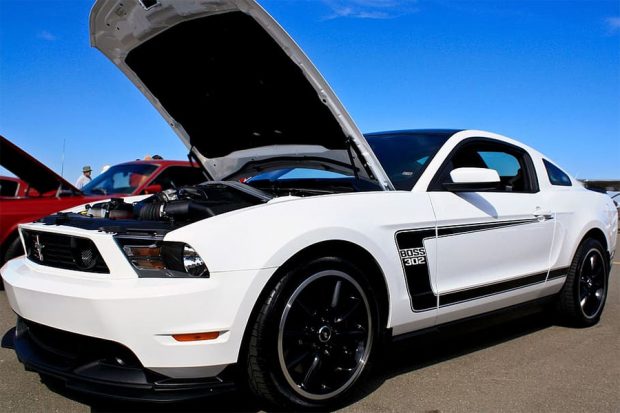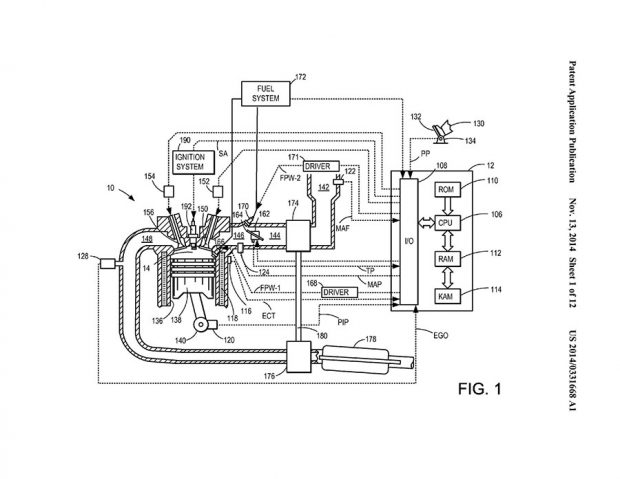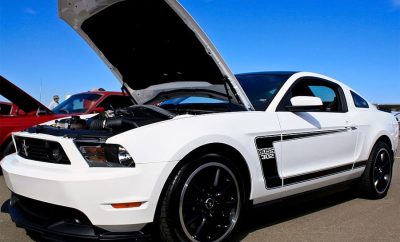
By Dave Ashton
The merest thought of future muscle cars not having a V8 heart of power fills most fans with dread. Electric powertrains seem to be the way forward for everyone, but is there an alternative? While most car manufacturers are fully committed to electric, there are also inroads into keeping the internal combustion engine going for as long as possible. In this case, hydrogen may be the answer.
Ford is currently restructuring to separate out their internal combustion and electric programs. Muscle Cars and Trucks recently discovered a U.S. patent for a hydrogen-fuelled, turbocharged engine created by Ford. In this scenario, hydrogen will be combusted via direct injection in the engine and is said to provide 15% more power than traditional gasoline.
At this stage of the game, the patent is only for the controlling and combusting of hydrogen. All the internals and the engine design are steps in the future. However, if everything goes to plan, a hydrogen-powered engine can make use of a large oversquare bore-to-stroke ratios, as there is no residue like burnt hydrocarbons. In theory, this means that the average engine could be capable of 20,000 rpm.

Other Car Companies Developing Hydrogen Power
Ford isn’t the only company who are hedging their bets with hydrogen technology. Toyota is beavering away with the development of their own hydrogen engine technologies via motorsport.
These engines will emit zero CO2, burn more efficiently than gasoline, and could possibly be adapted to existing ICE engines. For roadgoing vehicles, Toyota already has the Mirai available which is hydrogen-powered. The plus points here are 12% more power, a 9 second 0-62mph time, lighter weight than a car full of batteries, and should have a range of 400 miles.
Ultimately, the Mirai is a testbed, with the technology likely to end up in commercial vehicles. However, the Mirai shows that hydrogen is currently a viable option.
BMW, Land Rover, and Vauxhall all have plans for future hydrogen-powered commercial vehicles of some sort. Then there is the Hyundai Nexo SUV, which is an older design but still shows the viability of hydrogen.
So, if hydrogen technology comes to fruition, it could be the future solution to keeping all V8s running indefinitely. There is also the big elephant in the room of refueling times. A hydrogen-powered car can be refilled in 5 minutes. Electric cars take far longer to fully recharge. While this doesn’t seem to be a problem at present, once every car on the road has turned electric, it’s not hard to imagine huge lengthy queues at recharge points. Hydrogen fuelled cars can offer the same quick fuelling times as we currently enjoy.
The other main hurdle to the main adoption of hydrogen power is the refueling infrastructure. There simply aren’t enough refueling points currently available to make the technology attractive to everyone. Hopefully, this will change in the future.
But what about muscle car manufacturers? Clearly, Ford is looking into the idea, but there doesn’t seem to be any clear public plans from Dodge In the hydrogen department, at least when it comes to muscle cars. Dodge seems to have full focus on an electric muscle car, which may or may not be a version of either the Charger or Challenger. However, it seems Dodge is fully committed to a hydrogen-powered Ram HD pickup truck which debuts after the introduction of their electric variants, probably later this decade. Therefore, don’t rule out a day in the future when we see a hydrogen-powered Dodge muscle car. It could happen…
Chevrolet has the Sequel Hydrogen-powered SUV and the 2017 Chevrolet Colorado ZH2. GM have also linked up with Honda to produce hydrogen-powered generators for commercial use.
If you want to learn about the nitty-gritty details of current hydrogen engine research, then the science direct website is a good starting point. https://www.sciencedirect.com/topics/engineering/hydrogen-engines
VN:F [1.9.22_1171]
VN:F [1.9.22_1171]
Source link


